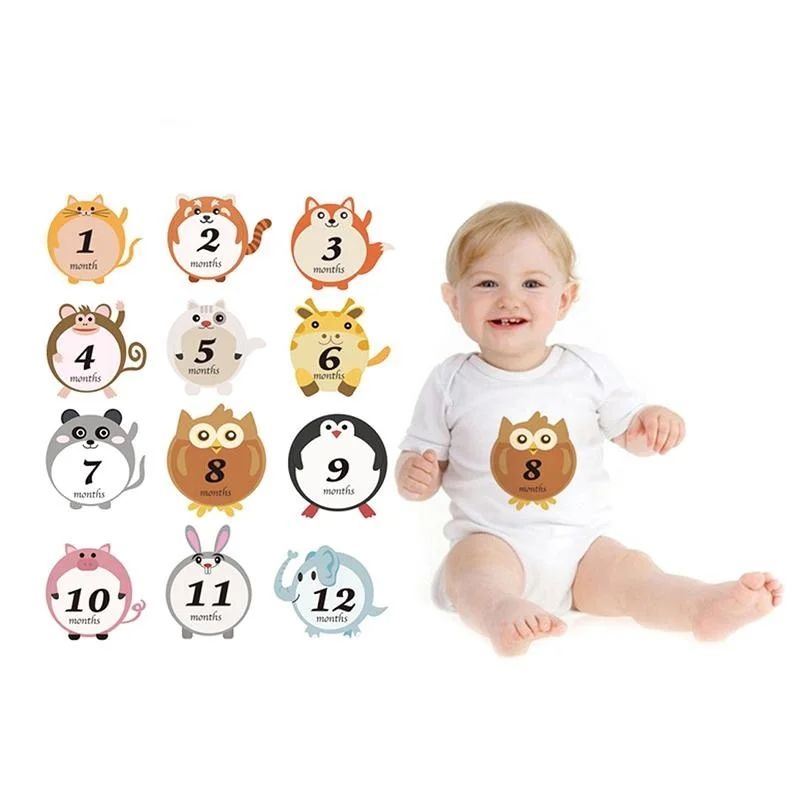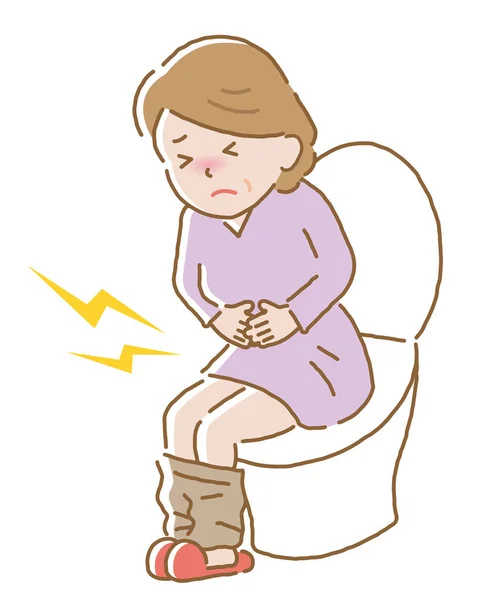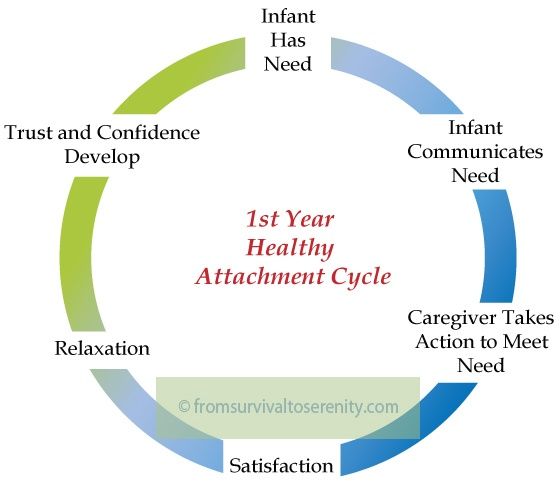Partner support during pregnancy
Supporting your partner during her pregnancy
Supporting your partner during her pregnancy | Pregnancy Birth and Baby beginning of content6-minute read
Listen
Supporting your partner through her pregnancy is a very important job. Pregnancy and childbirth can be exhausting both physically and emotionally, so helping her in any way you can will benefit her, your relationship and ultimately your baby.
Early pregnancy
For partners, finding out you’re going to be a parent can be a wonderful experience — but for some it’s terrifying. If the pregnancy is a surprise, partners often feel numb or in shock at first. This is normal.
It's usually best not to announce the pregnancy to other people until the end of the first trimester. You can use the time to get used to the idea of being a parent and thinking about how you will manage the changes a new baby will bring.
It's a good idea to be as involved as you can throughout the pregnancy — for example by going to doctor's appointments with your partner or looking at baby equipment together. Talking about your feelings will help you both deal with the emotions a pregnancy can bring.
Your partner may experience symptoms like mood swings and morning sickness. Try not to take it personally. You can help her by encouraging her to eat small amounts often. If she is vomiting very often or you are worried about her, contact your doctor.
It's normally fine to have sex during pregnancy, as long as both you and your partner feel like it. It might feel different, but it won't harm the baby. If your partner is bleeding or there are other problems, you might be advised not to have sex. You can support her by being patient and finding other ways to be intimate, such as kissing, cuddling and massage.
The second trimester
As the pregnancy progresses, the morning sickness should ease and the pregnancy will become more obvious.
The second trimester is the time to start thinking seriously about finances, your relationship, wills and life insurance. Communicating openly and honestly with your partner will help create the positive relationship you will need as parents.
You can support your partner at this time by helping her to have a healthy pregnancy, including by eating healthily, doing physical activity, cutting back on alcohol and quitting smoking.
Your partner's mood changes will probably settle now. If you notice either you or your partner are feeling very stressed or emotional for more than 2 weeks, and it's getting in the way of your day to day life, it is a good idea to speak to your doctor or midwife.
Later in the pregnancy
The third trimester is often when pregnancy gets real for partners. Your partner will start going for a lot more check-ups. If you can go with her, you will be able to hear your baby's heartbeat and understand more about what's going to happen during the birth. You can also attend antenatal classes, do a tour of where the baby will be born, and organise for time off work.
If you can go with her, you will be able to hear your baby's heartbeat and understand more about what's going to happen during the birth. You can also attend antenatal classes, do a tour of where the baby will be born, and organise for time off work.
Late pregnancy can be very uncomfortable for you partner. She may wake up often during the night, need to go to the toilet more, and find sex uncomfortable. You can help her by massaging her, helping her to get comfortable, and being patient when she starts cleaning the house ready for the new baby.
Your baby will be able to hear by now, so you can talk or sing to them. This will help you bond with the baby even before they are born.
The birth
The better prepared you are, the easier you will find the birth. You can talk to other partners who have been through it, watch videos, read a lot and attend antenatal classes with your partner. It's a good idea to discuss the birth plan together so you understand what she wants — although remember that this needs to be flexible.
You can prepare by making a plan for when she goes into labour and researching the best way to get to the hospital. When the time is near, make sure you pack everything you need as the labour can last a long time.
During the birth, your role as a birth support partner is to give emotional and physical support and encouragement. You can help your partner by reminding her to breathe slowly, massaging her, and helping her to get more comfortable. Don't be surprised if she changes her mind a lot!
You may need to deal with the midwives and doctors on your partner's behalf. Try to keep calm and breathe deeply and steadily if it all becomes overwhelming. If you feel faint, put your head between your knees and breathe slowly.
You may be asked to cut the umbilical cord when the baby is born. You can bond with your baby straight away by giving them a cuddle next to your skin.
Your feelings during the pregnancy
Some partners feel as though they have been left out during the pregnancy. She may be absorbed in the pregnancy, and all the attention is on her. You may feel rejected if you’re not included in her medical appointments, and you may have the feeling that she is more interested in the baby than you.
She may be absorbed in the pregnancy, and all the attention is on her. You may feel rejected if you’re not included in her medical appointments, and you may have the feeling that she is more interested in the baby than you.
Partners can also experience depression and anxiety during pregnancy and early parenthood. You are more at risk if you’ve had these conditions before, if you partner has depression or anxiety, if it’s a difficult birth, if you have relationship problems or if you have your own health problems.
Financial stress, changes to your work/life balance, the reality of parenting and the amount of support available to you can all make it more difficult to cope during the pregnancy and afterwards.
It’s important to look after yourself so you can look after your family. That means taking care of your own physical and mental health, talking to others in a similar situation and concentrating on your relationship. Talking openly and honestly with your partner, family or friends can make a big difference. Speak up if you’re feeling upset, before the feelings build up.
Speak up if you’re feeling upset, before the feelings build up.
You can also try exercising, deep breathing, muscle relaxation or yoga to ease stress and tension. If you feel that you’re getting angry, jealous or violent, speak to your doctor or call Mensline on 1300 78 99 78.
You can find more information on Beyond Blue’s Healthy Families website. If you start thinking they would be better off without you, or you are thinking about suicide, call an ambulance on triple zero (000) or go to the emergency department.
Where to go for help and advice
Call Pregnancy, Birth and Baby on 1800 882 436 to speak with a maternal child health nurse.
Raising Children has videos, information and more on its website Dads Guide to Pregnancy.
Mensline offers support and counselling services on 1300 78 99 78.
Beyond Blue offer support and advice for new dads on 1300 22 4636. You can download its book, Emotional health and wellbeing: A guide for new dads, partners and other carers.
Lifeline offers telephone support to anyone in crisis on 13 11 14.
Rainbow Families and Gay Dads Australia have resources for sexually and gender-diverse families.
QLife offers anonymous peer support and referral for the sexually and gender-diverse community — call 1800 184 527 or access their webchat from 3pm to midnight every day.
Sources:
Raising Children (Men: your reactions to pregnancy), Raising Children (Pregnancy: where do men fit in?), Raising Children (Moods and morning sickness: a guide for men), Raising Children (Sex in early pregnancy: men), Raising Children (What men can expect in middle pregnancy), Raising Children (What men can expect in late pregnancy), Raising Children (Men preparing for birth support)Learn more here about the development and quality assurance of healthdirect content.
Last reviewed: November 2020
Back To Top
Related pages
- Fathers and depression
- Being a dad
- Dad’s guide to bringing a baby home
- Being a birth support partner
- Dad's guide to fatherhood
Need more information?
Being a birth support partner
Learn more about supporting a woman in birth and labour, whether you are her partner, relative or a friend.
Read more on Pregnancy, Birth & Baby website
Sex during pregnancy
It's perfectly safe to have sex during pregnancy. It is normal for your sex drive to change during pregnancy, so make sure to talk about it with your partner.
Read more on Pregnancy, Birth & Baby website
Choosing a birth support partner
A birth support partner can offer many benefits to you and your baby. Learn here how to choose a partner who’ll support you before, during and after the birth.
Read more on Pregnancy, Birth & Baby website
Things to avoid during pregnancy
From hair dye to house paints, there are a few products or lifestyle habits pregnant women and their partners should be cautious of during pregnancy.
Read more on Pregnancy, Birth & Baby website
Bleeding during pregnancy
Bleeding during pregnancy is relatively common, however you should always contact your midwife or doctor immediately if it happens to you.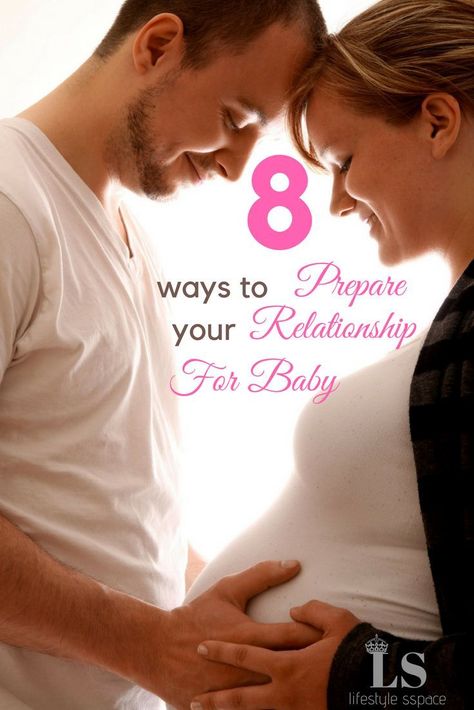
Read more on Pregnancy, Birth & Baby website
Bonding with your baby during pregnancy
Bonding with your baby doesn’t have to wait until they are born. Pregnancy can be the perfect time to start forming an attachment with them. Find out how here.
Read more on Pregnancy, Birth & Baby website
Antenatal care during your pregnancy
You receive antenatal care from your GP, midwife or obstetrician. You’ll be offered tests and scans and your health and your baby’s will be checked.
Read more on Pregnancy, Birth & Baby website
Pregnancy support - fathers, partners and carers - Better Health Channel
Whether you are the baby's father, the pregnant woman's partner or are supporting a single mother-to-be, you have a crucial role in ensuring she gets the pregnancy support she needs.
Read more on Better Health Channel website
Sleep positions during pregnancy and pregnancy pillow
Pregnant and having trouble sleeping? Find out about sleep positions that keep you and your baby safe and how to support your body while sleeping.
Read more on Parenthub website
Do you have a baby on the way? | Adults Supporting Kids
You and your baby have the right to be safe and supported during pregnancy
Read more on Adults Supporting Kids ASK website
Disclaimer
Pregnancy, Birth and Baby is not responsible for the content and advertising on the external website you are now entering.
Need further advice or guidance from our maternal child health nurses?
1800 882 436
Video call
- Contact us
- About us
- A-Z topics
- Symptom Checker
- Service Finder
- Linking to us
- Information partners
- Terms of use
- Privacy
Pregnancy, Birth and Baby is funded by the Australian Government and operated by Healthdirect Australia.
Pregnancy, Birth and Baby is provided on behalf of the Department of Health
Pregnancy, Birth and Baby’s information and advice are developed and managed within a rigorous clinical governance framework. This website is certified by the Health On The Net (HON) foundation, the standard for trustworthy health information.
This site is protected by reCAPTCHA and the Google Privacy Policy and Terms of Service apply.
This information is for your general information and use only and is not intended to be used as medical advice and should not be used to diagnose, treat, cure or prevent any medical condition, nor should it be used for therapeutic purposes.
The information is not a substitute for independent professional advice and should not be used as an alternative to professional health care. If you have a particular medical problem, please consult a healthcare professional.
Except as permitted under the Copyright Act 1968, this publication or any part of it may not be reproduced, altered, adapted, stored and/or distributed in any form or by any means without the prior written permission of Healthdirect Australia.
Support this browser is being discontinued for Pregnancy, Birth and Baby
Support for this browser is being discontinued for this site
- Internet Explorer 11 and lower
We currently support Microsoft Edge, Chrome, Firefox and Safari. For more information, please visit the links below:
For more information, please visit the links below:
- Chrome by Google
- Firefox by Mozilla
- Microsoft Edge
- Safari by Apple
You are welcome to continue browsing this site with this browser. Some features, tools or interaction may not work correctly.
Supporting Your Partner During Pregnancy
Getting involved in the pregnancy: the first 3 months
In the first 3 months, your partner is likely to start having pregnancy symptoms. Find out what to expect and how you can support them to have a healthy pregnancy.
Pregnancy dates
Pregnancy is dated from the first day of your partner’s last period. This date is about 2 weeks before they actually got pregnant.
The first sign of pregnancy is usually a missed period. So you and your partner may not be aware of the pregnancy for the first few weeks. Some women and birthing people may have very light vaginal bleeding (spotting) when the fertilised egg embeds into the wall of the womb.
Pregnancy is divided into 3 trimesters. The first 3 months are called the first trimester.
Pregnancy symptoms in the first trimester
Changes in hormone levels during pregnancy can cause physical and emotional changes in your partner. But every pregnancy is different. Your partner may have a lot of symptoms, or they may not have many at all.
A common symptom of pregnancy is morning sickness, which can start at about 4-7 weeks. Despite the name, it can happen at any time of the day or night.
You could help your partner work out what triggers their sickness – for example, a particular food, smell or time of day. Eating small, frequent meals and drinking plenty of water can help. There’s also some evidence that foods and drinks containing ginger can help but they should check with a pharmacist before taking any supplements.
If the sickness is severe or doesn’t get better, encourage your partner to speak to their midwife or GP.
Other symptoms during the first 3 months can include:
- feeling tired – help them to eat well and get plenty of rest.
 Gentle exercise can help too
Gentle exercise can help too - getting upset easily – encourage them to share their feelings with you and ask for help if they need it
- sore breasts
- needing to pass urine more often than usual – it’s still important to drink plenty of fluids so that their urine is a pale, clear colour
- changes in taste and smell.
What you can do
There are lots of things you can do to get involved in the pregnancy and support your partner in the first few weeks.
- Work out the due date together.
- Check that you both have a healthy lifestyle – this is important for you too.
- Encourage your partner to take vitamin D and folic acid supplements.
- Encourage your partner to speak to their midwife or GP if they’re worried about any pregnancy symptoms – they can also use our pregnancy symptom checker.
- Sign up to our pregnancy emails.
- Find out what financial help and time off work you can both get.
- Find antenatal classes in your area.

Read our week-by-week guide to the first 3 months of pregnancy.
Getting involved in the pregnancy: months 4 to 6
Months 4 to 6 are called the second trimester. The pregnancy might start to feel more real now that your partner’s baby bump is becoming more noticeable. Your baby will start to hear and move, giving you the chance to bond with them.
Pregnancy symptoms in the second trimester
The sickness of the first trimester should start to pass now. But the second trimester can bring its own set of symptoms.
- A higher sex drive – Your partner’s sex drive may go up and down. Having sex is safe unless a doctor or midwife has advised your partner not to.
- Backache – Gentle exercise can help. Help them avoid lifting anything heavy and give them a cushion to support their back when they’re sitting down.
- Headaches – These are common but if they’re very bad, your partner should see their GP.
:strip_icc():format(jpeg)/kly-media-production/medias/2785562/original/028627600_1556001360-shutterstock_1019963743.jpg) It’s safe to take paracetamol for a short time but they should not take codeine or ibuprofen unless a doctor has told them to.
It’s safe to take paracetamol for a short time but they should not take codeine or ibuprofen unless a doctor has told them to. - Tiredness – Encourage them to rest when they can.
- Pain in the hips or pelvis – Sleeping with a pillow between their knees may help.
- Constipation – Hormone changes can mean your partner finds it difficult and uncomfortable to poo. Eating lots of fibre, drinking plenty of water and gentle exercise can help.
- Cramp – This is usually in the legs or feet. Firmly rubbing the muscle or pulling the toes up towards the ankle may help to ease cramp.
- Feeling faint – Get your partner to sit down or lie on their side until they feel better.
- Swelling in the hands and feet – Make sure your partner doesn’t stand up for long periods and help them put their feet up when they’re resting.
Your partner may not get all of these symptoms but contact the midwife if either of you are worried about any of them. You can also use our pregnancy symptom checker.
You can also use our pregnancy symptom checker.
Bonding with your baby
You can start to bond with your baby now that they’re starting to hear and move around in the womb. Talking and singing to them will mean they get to know your voice. Towards the end of this trimester, you may be able to feel your baby moving if you put a hand on your partner’s bump.
Read our week-by-week guide to the second trimester.
Supporting your partner
You can support your partner to have a healthy pregnancy by:
- taking on any physical tasks that they find uncomfortable, such as lifting heavy items
- helping them to sit with their feet raised if they have swollen feet
- encouraging them to report any changes in the baby’s movements to the midwife straight away
- encouraging them to see their GP or midwife if they’re worried about any symptoms or the baby.
Getting involved in the pregnancy: the last 3 months before birth
The last 3 months of pregnancy are called the third trimester. It won’t be long until you get to meet your baby.
It won’t be long until you get to meet your baby.
Pregnancy symptoms in the third trimester
During this last trimester, your partner’s bump will get bigger and the baby will continue to move around a lot. Mums and birthing parents at this stage may:
- get breathless easily
- find it difficult to sleep ‒ it’s safest for them to sleep on their side
- generally feel more uncomfortable
- get Braxton Hicks, which feel like a tightening in the stomach area ‒ they’re perfectly normal but not everyone gets them.
Contact the midwife if you or your partner are worried about any pregnancy symptoms. You can also use our pregnancy symptom checker.
Supporting your partner
You can help your partner feel more comfortable by helping them find time to rest and taking on any physical work or heavy lifting. You may also want to:
- help them pack their hospital bag
- talk to them about any fears or worries they have about giving birth
- help them to make a birth plan – this can help them feel more in control
- think about joining a local antenatal class together
- plan your route to the maternity unit
- get your baby’s car seat ready
- buy the essential items for the early days after the birth together.

Read our week-by-week guide to the third trimester.
Psycho-emotional support during pregnancy
Clinic of Gynecology and Oncogynecology
Moscow, st. Shchepkina, 35
Moscow, Spiridonievsky per., 5/1
Moscow, st. Pravdy, 15 building 1
Write to WhatsApp
January 11, 2017
Loginova Olga
Obstetrician-gynecologist, Ph.D.
Pregnancy is generally assessed as a prosperous emotional period for the woman and the family as a whole. At the same time, in some women, the period of pregnancy and the state of motherhood increase the risk of developing or progressing mental disorders. Numerous studies have shown that pregnancy does not protect against the development of severe depression or the worsening of existing problems. Women who stop treatment on their own or reduce drug dosages are at high risk. Women are twice as likely to be depressed as men. Not surprisingly, depression is one of the most common medical complications during pregnancy and the postpartum period.
Women who stop treatment on their own or reduce drug dosages are at high risk. Women are twice as likely to be depressed as men. Not surprisingly, depression is one of the most common medical complications during pregnancy and the postpartum period.
Postpartum depression
Risk factors for depression in pregnancy:
-
daily stresses, including adverse events,
-
lack of social support,
-
domestic violence,
-
history of depression in previous pregnancies,
-
maternal anxiety,
-
unwanted pregnancy,
-
ambivalence towards pregnancy,
-
low income,
-
low level of education,
-
smoking,
-
absence of spouse/partner (single mother),
-
a history of postpartum depression and dose reduction or self-refusal to take antidepressants.

Potential complications of depression during pregnancy
Mother
-
Difficulties in childcare.
-
Smoking, alcohol or other drug abuse.
-
Decreased appetite and low body weight.
-
Sleep disorders.
-
Alarm.
-
Aggravation of depression.
-
Suicidal thoughts or attempts.
-
Not breastfeeding.
-
Disruption of communication mother-newborn.
-
Postpartum depression.
Effect of depression on fetal development - possible negative effects:
-
teratogenic effect,
-
spontaneous miscarriages,
-
preeclampsia,
-
intrauterine growth retardation,
-
premature birth,
-
low birth weight.

During pregnancy, many women experience increased levels of anxiety and emotional lability. In the first 3 months after childbirth, the risk of a mental disorder increases several times. Depression occurs in 80% of cases. Most mental disorders occur in women of childbearing age, in connection with this, pregnancy often occurs while taking psychotropic drugs. Abrupt withdrawal of psychotropic drugs often leads to relapse of psychiatric illness - a careful assessment of the risks and benefits to mother and fetus of medication and relapse of psychiatric disorder should be carried out. In women of childbearing age and pregnant women, psychotropic drugs that are as safe as possible for the fetus should be used. In some cases of mild to moderate anxiety and depressive disorders, cognitive behavioral therapy is the first choice.
Principles of therapy
-
Involving prospective parents in decision making.

-
Use of the lowest effective doses.
-
Use of the safest preparations.
-
Do not administer multiple drugs at the same time.
-
Adjust dose during pregnancy.
-
Provide adequate screening for fetal development.
-
Inform obstetricians and gynecologists about possible changes in mental status.
-
Assess the development of withdrawal syndrome in a newborn.
Breastfeeding and drug therapy
-
All psychotropic drugs pass into breast milk. The concentration depends on the psychopharmacological properties of the drug.
-
Since most psychotropic drugs are metabolized by the liver, and in newborns up to 2-3 months. insufficiency of liver enzymes, then premature babies and newborns have an increased risk of toxic effects.
-
The concentration of antidepressants and tranquilizers in mother's milk is quite low, especially when using low doses.
 When planning a temporary breastfeeding regimen, it is possible to minimize the ingestion of the child, but it is impossible to exclude the toxic effect.
When planning a temporary breastfeeding regimen, it is possible to minimize the ingestion of the child, but it is impossible to exclude the toxic effect. -
The concentration of normotimics (lamotrigine, carbamazepine, lithium preparations, valproic acid) in breast milk is very high (20-50% of the mother's serum concentration).
Psychotherapeutic techniques
-
Cognitive behavioral therapy.
-
Interpersonal psychotherapy.
-
Supportive psychotherapy.
-
Family counseling.
At the European Medical Center, all pregnant women in need of psychological support are accompanied by qualified obstetrician-gynecologists together with psychiatrists.
As part of the EMC School of Moms, you can ask any questions that concern you to our psychiatrists.
Rate
Average: 3.50 (2 ratings)
Clinic of Gynecology and Oncogynecology
Moscow, st.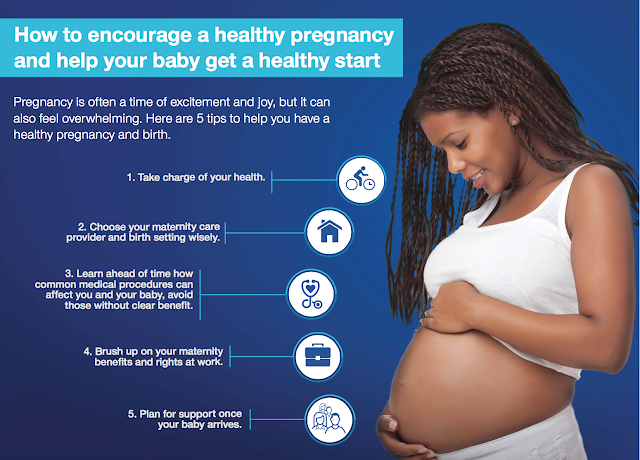 Shchepkina, 35
Shchepkina, 35
Moscow, Spiridonievsky per., 5/1
Moscow, st. Pravdy, 15 building 1
Write to WhatsApp
Doctors and staff
IMPORTANT PREGNANCY QUESTIONS | About vitamins, nutrition, shoes, etc...
Nov 28
All videos
Clinic of Gynecology and Oncogynecology
Dear Vladimir Borisovich! Thank you from the bottom of my heart. You are truly a doctor from God with a capital letter. Thanks to your professionalism, kindness, tact, charm and talent, I believed in the success of the upcoming operation immediately at the first meeting at your appointment, you explained everything so intelligibly and convincingly that there was complete confidence in success. The operation you have done is fantastic! The very next day it was possible to sit, get up and groom, and on the third day I was discharged home. Just great. A month later, I completely forgot about the problems that I had before the operation. Once again, many thanks to you and your team, God bless you with health, well-being and success. You are a miracle doctor!!! Best regards, Antonina
Just great. A month later, I completely forgot about the problems that I had before the operation. Once again, many thanks to you and your team, God bless you with health, well-being and success. You are a miracle doctor!!! Best regards, Antonina
Antonina, Moscow
All reviews
Borderline ovarian tumors
November 28, 2022
All stories
We are asked
Pain in the region of the heart in young people
03.03.2017
Crunch in the knee
06/28/2017
Aseptic necrosis of the left femoral head
09/15/2016
Read all
The role of a man in pregnancy
So, your wife is pregnant, which means that you are expecting a baby together. And, most likely, you are interested in questions about how this pregnancy will directly affect you, your wife and your relationship in general. In order for everything to turn out well, you need to understand what your wife expects from you, and what is your role in this difficult period.
And, most likely, you are interested in questions about how this pregnancy will directly affect you, your wife and your relationship in general. In order for everything to turn out well, you need to understand what your wife expects from you, and what is your role in this difficult period.
The first thing your wife always expects from you is fulfilling a male role, fulfilling male duties, which can manifest themselves as participation and support in everyday ordinary life.
However, the time of pregnancy differs from the usual life of the spouses. Moreover, pregnancy itself consists of trimesters, which also have their own characteristics. Therefore, your participation and support should be different in each trimester.
First trimester
The wife's emotional state can be described as "here and now".
- During this period, it is important for your wife first of all to accept her pregnancy, to accept all the changes that are happening to her and in her.

- She becomes helpless, because the physiological and hormonal restructuring of the body in this trimester takes a lot of strength. A woman in her emotional state in the 1st trimester approaches the characteristics of a small child who needs parental care and priceless love.
On the other hand, it is the realization that both of you are becoming parents that prompts her to “test” you again and again for your readiness for fatherhood: what kind of father are you for her child, how do you cope with your role ...
Therefore, your task during this period is to try to be a father for both - for your wife and baby. And you won’t be able to come up with anything better than the simplest thing - to fulfill her “strange” desires, pamper her, protect her and show her how much you love her. Because attention to her, to her condition means for the wife that you will also take care of the child.
Supporting your wife at the beginning of pregnancy, you will get much more than you gave: you will get her confidence that you are there, that you can take care of her in a difficult responsible period, that you are an attentive, feeling father and you can have children with you.
Second trimester
The emotional state of the wife fits the definition of "bread and circuses".
In the second trimester, the emotional and intellectual sphere of a woman changes:
- the intensity of her emotions becomes brighter;
- long experiences disappear;
- the leading emotional background is positive and, if nothing happens, life is beautiful.
Now your wife is quite well adapted to her condition, eats "for two" and needs a variety of positive emotions.
What is your role in this trimester? To be with her - a partner, in all her endeavors: theater, exhibitions, cinema, shops, various taste changes (including possible restrictions on products), sex, doctors, prenatal courses, swimming pool, etc.
This is the "golden time" of pregnancy, when you live this period vividly together, are saturated with the novelty of life, and already your baby shows itself to be moving. In this trimester, a woman begins to move from the position of a child to a motherly position. She is already beginning to take concrete care of the baby: she communicates with him, looks for information related to the child, goes to courses, makes plans ...
She is already beginning to take concrete care of the baby: she communicates with him, looks for information related to the child, goes to courses, makes plans ...
During this period, you also begin to feel your paternity, because it becomes possible to communicate with the child through the stomach, and you can already form a first impression of him: what he is like, what he does not like, how he reacts to external events, how long it takes to calm down …
During this period, your role doubles: for your wife you become a caring partner in life, and for a baby - a parent. All you need to do is to be a support for your wife and make it clear that she is loved, despite any changes that occur to her body.
The third trimester
The third trimester can be characterized as follows: “nesting and sleeping…”
The essence of this trimester is to experience 2 events:
- to equip the “nest” and
- prepare for childbirth.
Inevitably and unexpectedly for you, the wife will begin to show the nest-making syndrome, which is characterized by her completely irresistible desire to prepare a place for the child: buying a crib, various kinds of accessories for the child, etc. Even if your wife basically does not buy anything before the birth of the baby, you cannot avoid shopping.
Even if your wife basically does not buy anything before the birth of the baby, you cannot avoid shopping.
And then your role may be to take a manly approach to evaluating the things you buy. If a stroller, for example, evaluate it in terms of functionality, ease of delivery, installation in an apartment, heaviness for a wife, rigidity for a child, etc. Here is the time to reveal yourself as a man - the head of the family!
We often have much more in us than we think. And pregnancy not only reveals a woman, but also enriches a man, making him stronger and giving him new skills and knowledge about himself. By the end of pregnancy, your wife will more and more “go away” into an internal state, as if glowing from the inside. She is psychologically and physiologically preparing for childbirth. She is almost ready to become a mother and ready to take care of the baby.
Your role is the role of an equal partner in organizing and living this event, as well as becoming a real father for the baby with all the rights to love him and all the duties to him: in saving his life and providing him with favorable conditions for health, growth and development .

